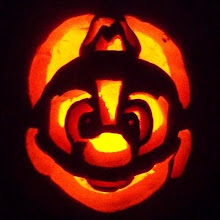Blood is red, not blue; the Koala is a marsupial, not a bear; and the Solar System has eight planets, not nine (sorry, Pluto). With all of today’s political promises, too-good-to-be-true sales offers and questionably accurate websites [citation needed], it’s hard to know what to believe. I can’t separate all the facts from fiction, but I can cure ten common misconceptions that most people seem to suffer from. See how many of these you didn’t know:
1. Noah's Ark
Pop quiz: how many of each animal were on Noah’s Ark? Two, right? WRONG! The tale specifically states that the ship carried a whopping seven of each “clean beast” and only two of the “unclean beasts.” Sounds like Noah's gonna need a bigger boat...
2. “Luke, I Am Your Father”
Don't you hate it when someone tries quoting a great line and just butchers it? Well, of all the famous incorrectly quoted movie lines, none were so popular as Darth Vader's when he spilled the beans about his family tree at the end of The Empire Strikes Back. However, us true geeks know Vader's actual line as, “No. I am your father.” Oh, and in case you were wondering, Luke’s line is, “NOOOOOOOOOO!"
3. One of Zero Objects Visible From Space
The Great Wall of China is often credited as being visible from space… but is it? Sure, maybe from “inner space.” In low orbit, you’re still able to see a lot of things, such as highways and buildings. But from any real distance, like the moon, no man-made objects are visible (after all, the Wall is only ten feet wide). China was just being greedy.
4. Itch That -- Wait, Scratch That
This mistake is so common that it’s actually become acceptable, even by some dictionary's standards. But if you ever ask me to “itch your scratch,” I’ll do more than correct you! I still adhere to the old Itchy and Scratchy rule of grammar, which states that “itch” refers to the irritating sensation of the skin and that “scratch” refers to the reflexive response. Personally, it itches me when people are so ignorant, and correcting them is like a good, satisfying scratch.
5. Pass Me a Kleenex
You mean, pass you a tissue! “Kleenex” is actually a specific brand name for tissues, but due to its catchy name (and a good marketing campaign), the product became so popular that it’s virtually replaced the generic name for a tissue. Imagine if things turned out differently and we all said, “Pass me a Puff."
6. Frankenstein
When most people hear the name, they picture the monster. But anyone who read Mary Shelley’s classic knows that Frankenstein was actually the doctor. I blame this misconception on uneducated Halloween-costume-designers and misleading films titles like Bride of Frankenstein. But seriously, why didn't Franky name the monster? If he was brilliant enough to create life, you think he’d at least be smart enough to come up with a good name, like, I dunno, “Stitches.”
7. Speaking of Doctors…
Theodor Seuss Geisel, a.k.a. Dr. Seuss, was one of the most beloved and influential poets of the 20th century. Everyone knows “Green Eggs and Ham” and “Oh, the Places You’ll Go!,” but not many know that Seuss is actually pronounced “Zoice” (rhymes with voice, not juice). You can’t blame parents or kids for this one. Seuss was an intensely private man who never left his tower long enough to correct anyone. So when you introduce your kids to Seuss (which you’d better), please introduce, too, the correct pronunciation.
8. Pong Was Not the First Videogame
Nerds: take a minute. Catch your breath. It’s true. At the time of the game’s release (in 1972), electronic interactive games, however basic, had already been around for over twenty years. I've also heard Pong referred to as the first arcade game, the first home console game and the first multiplayer game, all of which are false. However, Pong was the first videogame to achieve enormous popularity, and is widely credited with launching the modern videogame industry. So, for all you gamers out there, bow down before the almighty ball and paddles.
9. The Swastika
Though commonly associated with the Nazi party, the figure known today as the “swastika” actually dates back to the Stone Age. It was often used as a good luck symbol and was especially popular in ancient cultures due to its appearance on the pattern of weaved baskets. The shape was used by Persians, Celts, Greeks, Buddhists, Hindus, and Native Americans before being adopted by Adolf and his merry men. However, I still wouldn't recommend getting it tattooed anywhere visible.
10. You Could Care Less, Right?
Well, technically, the expression, “I could care less,” means, in fact, the opposite, for if one claims it possible to “care less” about a subject, one implies they care at least somewhat for said subject. Therefore, if one wishes to express disinterest in the subject, one should instead elect to say, “I could care more.” As if one even cares.
So, the next time somebody misquotes, mispronounces or just misses entirely... do us all a favor. Correct them. P.S. -- I apologize to fans of Pluto, but it was demoted from planetary status in 2006, as it failed to meet the new “planetary guidelines.”

No comments:
Post a Comment